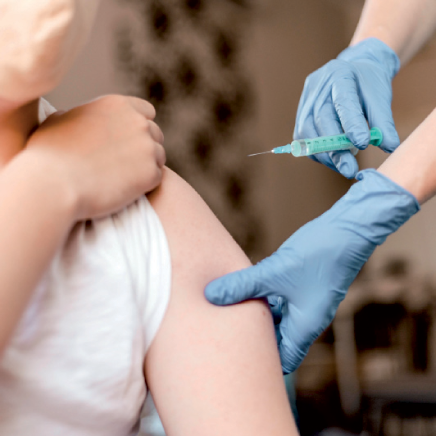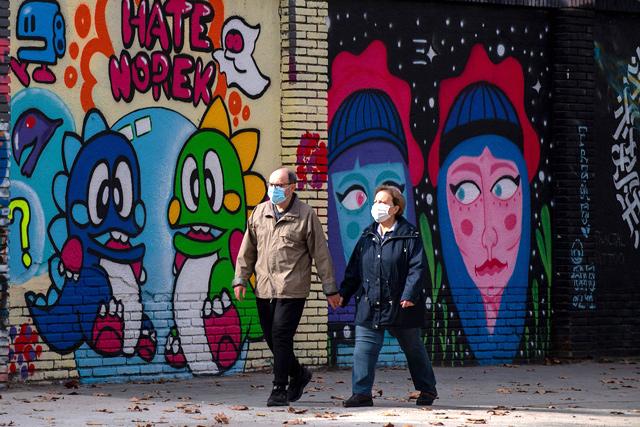You are here
20 million children not vaccinated in 2018: UN warns against ‘stagnation’
By AFP - Jul 15,2019 - Last updated at Jul 15,2019
GENEVA — Almost 20 million children missed out on potentially life-saving vaccinations last year, the UN said on Monday, as surging measles cases highlighted "dangerous" gaps in efforts to shield kids from preventable illness.
Last year, 19.4 million children were "not fully vaccinated", the World Health Organisation (WHO) and the UNICEF children's agency said in an annual report — up from 18.7 million in 2017 and about 18.5 million the year before.
This all pointed to a "dangerous stagnation of global vaccination rates, due to conflict, inequality and complacency", the United Nations agencies said.
The comparative birth rate was not provided, but they warned the global quest for widespread vaccination against life-threatening disease has stagnated.
A case in point: the global coverage rate for a key vaccine combination against diphtheria, tetanus, pertussis (whooping cough) and measles has been stalled at 86 per cent since 2010, it said, describing the rate as "not sufficient".
Some 350,000 measles cases were reported globally last year — more than double the 2017 number, a "real-time indicator" of the quest to expand vaccine coverage, UNICEF chief Henrietta Fore said in a statement.
In April, the WHO said 2019 was set to be worse, with preliminary data showing reported measles cases in the first quarter 300 times higher than the same period in 2018.
There was some progress too.
By last year, 90 countries — though largely wealthy ones — integrated the human papillomavirus vaccine into their national programmes, thus making it available to one in three girls worldwide, the UN said.
The vaccine is given to girls, and recently also to boys, against a sexually-transmitted virus type that causes a range of cancers, including of the cervix.
'Outright false information'
A worldwide resurgence of measles is partly blamed on the so-called "anti-vax" movement based on fake science wrongly linking vaccines to side effects including autism.
This has discouraged many parents, particularly in the United States but increasingly in Europe, from taking their children for their shots.
The director of the WHO's vaccines department, Kate O'Brien, told reporters in Geneva the UN was "concerned about the proliferation of misinformation [and] outright false information", online.
But she stressed that "access" remained the main obstacle. Countries with the weakest public health systems still have the lowest vaccination rates, though coverage in Sub-Saharan Africa rose from 50 per cent in 1999 to 76 per cent last year.
'Backsliding'
A number of countries with coverage formerly well above 90 per cent, have regressed, the data showed.
In Brazil for example, application of the first dose of a measles vaccine fell to 84 per cent last year from a high of 99 per cent.
Ecuador saw a similar drop for the first measles dose, while in the Philippines coverage fell from 87 per cent to 67 per cent from 2010 to 2018.
The "reasons for backsliding include complacency, lack of investment in public health, conflict, and in some places lack of trust in vaccines", the UN said.
Related Articles
AMMAN — The Measles-Rubella (MR) vaccine, which is provided free of charge for targeted children in Jordan, is safe and effective at protect
GENEVA —The World Health Organisation(WHO) warned on Thursday that Covid-19 restrictions had crippled measles vaccination efforts amid fears
AMMAN — Health Minister Feras Hawari on Monday highlighted significant factors contributing to the spread of measles, including the surge of



















